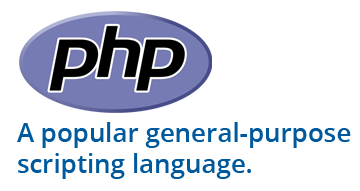PHP Programming Language Course in Solapur
Best PHP Language Training Institute in Solapur
Your hunt for a standard PHP course ends here at Shreevidya Infotechnologies, the Best Training Institute for PHP Training in Solapur. We are one among those top-class PHP training institutes in Solapur offering this widely used scripting language of all times.
PHP Programming Course Overview
PHP is a widely-used general-purpose scripting language that is especially suited for Web development and can be embedded into HTML.
- PHP can generate dynamic page content
- PHP can create, open, read, write, and close files on the server
- PHP can collect form data
- PHP can send and receive cookies
- PHP can add, delete, modify data in your database
- PHP can restrict users to access some pages on your website
- PHP can encrypt data
With PHP you are not limited to output HTML. You can output images, PDF files, and even Flash movies. You can also output any text, such as XHTML and XML.
Prerequisites:
- HTML
- CSS
- JavaScript
Objectives of the Course
- PHP runs on different platforms (Windows, Linux, Unix, Mac OS X, etc.)
- PHP is compatible with almost all servers used today (Apache, IIS, etc.)
- PHP has support for a wide range of databases
- PHP is free. Download it from the official PHP resource: www.php.net
- PHP is easy to learn and runs efficiently on the server side
- Duration: 45 days - daily 1.30 hours.
Why Shreevidya Infotechnologies is the Best PHP Training Institute in Solapur?
- We are one of the pioneering PHP Training Institutes in Solapur with Placement Assistance to provide capable training on real-time projects and comprehensive curriculum for the aspiring candidates. Advantages of learning in our Institute are as follows:
- Excellent Lab Infrastructure
- Proficient and Experienced Trainers
- Free Demo Class
- Convenient Timing on Classes
- Small Batch Allocation
- Installment Options on Payment
- Worth Spending on Time and Efforts
Syllabus
- History of PHP
- Versions and Differences between them
- Practicality
- Power
- Installation and configuring Apache and PHP
- Styles of PHP Tags
- Comments in PHP
- Output functions in PHP
- Datatypes in PHP
- Configuration Settings
- Error Types
- Variable Declarations
- Variable Scope
- PHP’s Superglobal Variables
- Variable Variables
- Magic Constants
- Standard Pre-defined Constants
- Core Pre-defined Languages
- User-defined Constants
- Execution Control Statements
- Conditional Statements
- Looping Statements with Real-time Examples
- Creating Functions
- Passing Arguments by Value and Reference
- Recursive Functions
- What is an Array?
- How to create an Array
- Traversing Arrays
- Array Functions
- Include, Include_once
- Require, Require_once
- Validating text boxes,emails,phone number,etc
- Creating custom regular expressions
- Classes, Objects, Fields, Properties, _set(), Constants, Methods
- Encapsulation
- Inheritance and types
- Polymorphism
- Constructor and Destructor
- Static Class Members, Instance of Keyword, Helper Functions
- Object Cloning and Copy
- Reflections
- What is MySQL
- Integration with MySQL
- MySQL functions
- Gmail Data Grid options
- SQL Injection
- Uploading and downloading images in Database
- Registration and Login forms with validations
- Pagging, Sorting,…..
- Declarations styles of String Variables
- Heredoc style
- String Functions
- Regular Expression Stntax(POSIX)
- PHP’s Regular Expression Functions(POSIX Extended)
- File Functions
- Open, Create and Delete files
- Create Directories and Manipulate them
- Information about Hard Disk
- Directory Functions
- Calculating File, Directory and Disk Sizes
- Error Logging
- Configuration Directives
- PHP’s Exception Class
- Throw New Exception
- Custom Exceptions
Date and Time Functions
- HTTP Authentication
- PHP Authentication
- Authentication Methodologies
- Why Cookies
- Types of Cookies
- How to Create and Access Cookies
- Session Variables
- Creating and Destroying a Session
- Retrieving and Setting the Session ID
- Encoding and Decoding Session Data
- Auto-Login
- Recently Viewed Document Index
- Why Web Services
- RSS Syntax
- SOAP
- How to Access Web Services
- What is XML
- Create a XML file from PHP with Database records
- Reading Information from XML File
- Introduction
- Storage Engines
- Functions
- Operators
- Constraints
- DDL commands
- DML Commands
- DCL Command
- TCL Commands
- Views
- Joins
- Cursors
- Indexing
- Stored Procedures
- Mysql with PHP Programming
- Mysql with Sqlserver(Optional)

